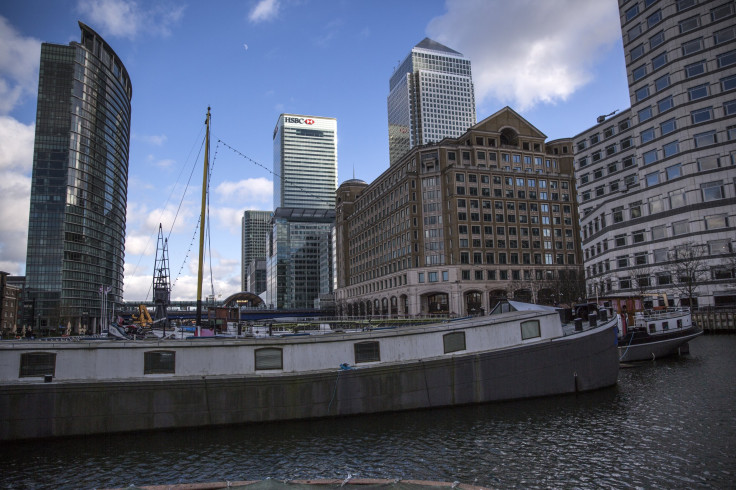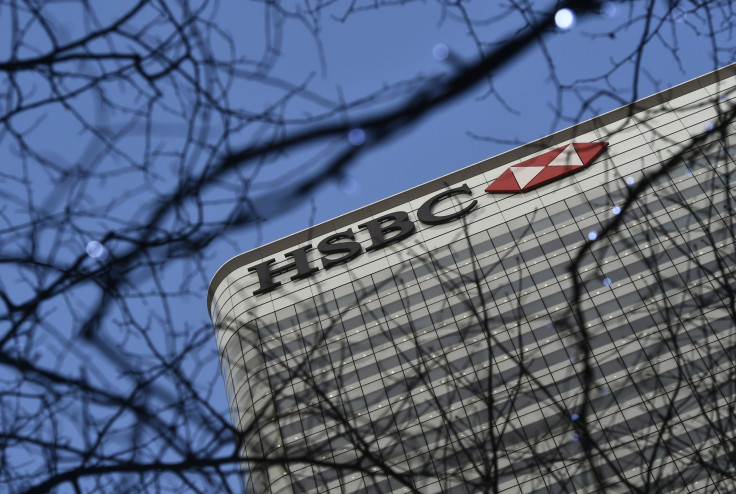Brexit: London Financial Sector Divided Over Risks Of EU Departure

LONDON — The City of London’s skyline casts a long shadow over Europe. As European leaders take part in a two-day summit in Brussels to strike a deal with British Prime Minister David Cameron ahead of a U.K. referendum on European Union membership, London’s global business community is scrabbling around in the dark.
Concern about a possible British exit from the EU has been rising as the summit draws near. Analysts from Citibank had argued that the probability that the U.K. votes in favor of a Brexit was around 20-30 percent, but in a Feb. 5 note they said they believed it was creeping up to around 30-40 percent.
The reason for the concern is obvious: A lot of money is at stake. In 2014, the latest year for which data is available, British exports of financial services to the EU amounted to 20.2 billion pounds ($28.8 billion). U.K. exports of financial services accounted for almost all of the surplus in Britain’s service-sector trade surplus with the EU, equivalent to about 1 percent of the country’s GDP. If denied access to the single market, many British commentators expressed their concerns that financial firms will find it easier to do business if they relocate to the European mainland.
From the institutional side, several big players have already declared their interests in avoiding a Brexit. Stuart Gulliver, the chief executive of Europe’s largest lender, HSBC, said in an interview this week that the bank could move its markets business out of the U.K. in the event of a Brexit. Depending on the terms negotiated, Gulliver said that a Brexit could have a “significant negative impact” on the bank’s markets businesses, which would see some or all of those businesses’ 5,000 employees moved out of the U.K.
In addition, Michael Sherwood and Richard Gnodde, the co-chief executives of Goldman Sachs International, expressed similar views, saying European banks would relocate “in very short order” if Britain voted to leave the EU. Several international and British banks operating in the U.K. declined to comment for this story, saying a public statement outlining their position would be too political.
Outside of the realm of institutional players, however, opinions were divided on the relative merits and disadvantages of Britain leaving, and potential corporate flight to elsewhere on the continent.
“Following a Brexit, there will undoubtedly be regulatory and financial changes which will impact some U.K. companies adversely,” Ranjeet Sandhu, director of London Stone Securities, told International Business Times.
“We expect there to be some limited migration of euro-denominated businesses to mainland Europe ... we predict a modest impact of 4-7 percent of businesses relocating in the event of a Brexit.” Sandhu added.
Despite this, Sandhu said he was confident that any negative effects on London’s financial services industry would be short-term, and that London would remain attractive to international businesses. “Following a Brexit, the free market will finally be able to search for fair value on the foundations of certainty and stability, which can only be a positive thing,” he added.

Other experts also voiced confidence in London’s ability to stem business losses in the event of Britain leaving.
“[London’s] competitive advantage is founded on more than just unfettered access to the single market,” Vicky Redwood, chief U.K. economist at Capital Economics in London, wrote in a note. “An EU exit would enable the U.K. to broker trade deals with emerging markets that could pay dividends for the financial services sector in the long run,” she added.
A recent raft of polling from business and industry groups has shown a greater number supporting remaining in the EU than leaving it. A September survey of 6,200 members of Britain’s Federation of Small Business found 47 percent of respondents in favor of staying in, 40.9 percent in favor of leaving and 10.7 percent undecided. A British Chambers of Commerce poll of more than 2,100 U.K. business leaders published on Wednesday found almost two-thirds would vote to remain.
Others argue it is simply too soon to even guess what kind of financial fallout would follow the U.K.’s departure. “A lot of the answers to these questions depend on what kind of Brexit you end up with,” Sam Hill, a senior economist with RBC Capital Markets in London, told IBT.
“For example, if you end up with a ’Norway’ outcome — you’re out of the EU but still in the single market — well, it might be that it’s not that big a deal ... [But] you have to assume that if there was to be a Brexit, there is a risk that the U.K. does not have the ease of access of selling its financial services into the EU that it currently has. That does carry a risk that some businesses relocate,” he added.
From a international perspective, a Brexit would present a tempting opportunity for cities such as Frankfurt, Paris and Brussels to lure companies from the U.K.
“It cannot be good for the U.K. if it leaves the EU and it can’t be good for the financial markets in London,” investor Jim Rogers told IBT.
“I’m sure many [businesses] would find a new home, just because it would be easier and less expensive,” he said. “Somebody in Brussels will find as many incentives as they can to move that business to Europe. They’re not going to sit there and say, ‘Oh this is wonderful. Britain has left the EU, we have nothing to do with them and they have nothing to do with us, so let’s help them get more businesses’ — they’re going to try and get the business in Europe.”
© Copyright IBTimes 2025. All rights reserved.






















